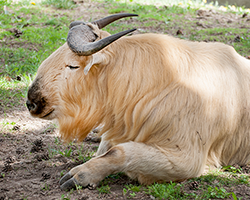 Damaris Browne is a former solicitor whose ancestors include Spanish aristocrats, Somerset horse-dealers, numerous soldiers of various ranks from private to general, and one wife-murderer.
Damaris Browne is a former solicitor whose ancestors include Spanish aristocrats, Somerset horse-dealers, numerous soldiers of various ranks from private to general, and one wife-murderer.
Damaris Browne
The Tale of Shir Shaheen and the Caravanserai – Chapter 2: A Seed of Wisdom
 “Glad am I, dearest of friends, that sleep has eased thy pain. But lie still yet awhile, and let me again transport thee to a time long past when Shir Shaheen cursed and hated all humans. Freed was Shaheen, yet trapped was he also. Freed from the desert glass, the Tears of Safar; trapped within the ruins of Paridiz, the creation of Safar.”
“Glad am I, dearest of friends, that sleep has eased thy pain. But lie still yet awhile, and let me again transport thee to a time long past when Shir Shaheen cursed and hated all humans. Freed was Shaheen, yet trapped was he also. Freed from the desert glass, the Tears of Safar; trapped within the ruins of Paridiz, the creation of Safar.”
Vengeance had Shaheen sworn against the vizier of Gorj, yet no vengeance could he wreak unless he escaped from Paridiz. Long he considered the sorcerer’s words – that one certain thing no other djinn had done would set him free – yet was he no closer to understanding what he must do nor the intent behind it. But if he could not unravel the sorcerer’s riddle, he could battle the sorcerer’s binding.
With the dribble of magic left to him Shaheen was able still to change his size and shape, though now only in limited ways, and as a lizard he climbed the city’s walls, as a beetle he probed their every cranny and crevice, as a sand fox he dug to their foundations, and in incorporeal form he slipped into their brick and stone.
To no avail. As far as he could reach above, as far as he could delve below, a barrier, invisible, unmoveable, surrounded the city through which he could not pass. With his fists he struck it, with rocks he pounded it, with shards of stone he stabbed it, with a mirror reflecting the sun’s rays he tried to burn holes in it. But not the least mark or dent or scorch did he create. Even when he threw down a wall, though the bricks fell, the barrier remained.
The Tale of Shir Shaheen and the Caravanserai – Chapter 1: As Wind Along the Waste
 “Rest now, O dear one, friend of friends. Rest and forget all thy cares, for I shall tell thee a tale of wonder – a tale of Shir Shaheen the fierce and terrible, lord of the desert waste, strong lion of the sands, swift falcon of the air. Shaheen, the greatest djinn that ever was or is or will be.”
“Rest now, O dear one, friend of friends. Rest and forget all thy cares, for I shall tell thee a tale of wonder – a tale of Shir Shaheen the fierce and terrible, lord of the desert waste, strong lion of the sands, swift falcon of the air. Shaheen, the greatest djinn that ever was or is or will be.”
Like the wind was Shir Shaheen as he flew across his realm of the Great Salt Desert, invisible, incorporeal, outpacing hawks and eagles – with warm zephyrs he caressed the hidden oases and the creatures that lived upon the shining salt flats, but harsh gusts he hurled at any men trespassing on his lands, and against the merchant caravans which tried to cross the desert, he raised towering sandstorms a thousand times a man’s height. Few caravans ever ventured the desert crossings; fewer still survived.
But though he wielded such great powers, there came a time when Shir Shaheen was outwitted by the humans he so hated.
In the sweet cool of evening, he sensed their foul shadows crossing the gold and ochre sands towards the ruins of Paridiz. Enraged, he sped towards them, for though the city was now a haunt of jackals, to Shaheen it remained a place of veneration for it was the finest creation of his elder brother, Safar.
From both north and south the humans came. From the north, a small party with mules laden with hateful, soul-tearing iron; from the south, a merchant caravan of many camels, bearing something so precious Shaheen trembled as he felt its call – a shard of desert glass, known to all djinn as the Tears of Safar.
Orison – Praying, Remembering. Chapter 12: Remembering Done: the Prayer
 Hear my prayer, Lady, and remember me. I have found the men who have ravished the land. I have found Aprakash.
Hear my prayer, Lady, and remember me. I have found the men who have ravished the land. I have found Aprakash.
She stands in the shadow of a cliff. High above her are the men who have plundered and butchered and raped across the borderlands.
It’s been two months since she lay on a ridge looking down onto a burning village and discovered Aprakash was the bandits’ leader. Two months in which she’s followed his bloody footsteps through more ravaged villages and small townships, recording, witnessing, collecting every scrap of evidence. Two months in which she has finally reached acceptance of what must be done, what she must do, for at last she understands.
Compassion needs Benevolence – pity can do little without action. Wisdom requires Truth – the lodestar which guides and governs. And the Giver-of-Judgements relies upon Justice, the last gift of the Lady of Six Aspects – both noble ideal and the weapon without which judgements are merely words.
She finishes her scrutiny of the cliff then stealthily returns to the tiny cave where she spent the night. She brought just a few scraps of food and a small pack with her – most of her belongings, including all the evidence she’s assembled, are with her horse in the care of a pedlar two miles away. Whatever happens, the evidence will be sent to the monastery for copying and lodging with the central court administration; if she doesn’t return, everything else will be the pedlar’s.
She’s spent a day and a half examining the bandit’s lair, studying its approaches, its defences. Even at the cliff top they have a guard, though only one, confident as they are of the cliff’s protection. But with more than a dozen men to confront, she needs to wait until the darkest part of the night, for their fires to burn low, their raucous laughter to fade to snores, the guards themselves to be lulled towards sleep by the quiet of the mountains.
Hear my prayer, Lady, and remember me. The men I have sought are many. I am one. But I am also many, if, Lady, you are with me.
Orison – Praying, Remembering. Chapter 11: Remembering the Years of Wandering
 Hear my prayer, Lady, and remember me. I wandered long and far after leaving the monastery, but you surely knew me still, though I had no name …
Hear my prayer, Lady, and remember me. I wandered long and far after leaving the monastery, but you surely knew me still, though I had no name …
“I’m no one,” she says, putting the final stitch into the gash in the boy’s arm. This is the third village she’s seen plundered; the first with survivors, thanks to the old man now interrogating her as he holds the injured boy still for her needle. The old man she refuses to name, because she can’t allow this haggard, wasted figure to be the beloved Sukhbir of her memories.
“I don’t believe you,” says the man who can’t be – mustn’t be – Sukhbir. “I know a priestess when I see one.”
“Look at my hands, old man.” She holds them out, palms uppermost, bloodied as they are from her work. “You see any symbols of the Lady there?”
“The Lady has more than one way of marking her own – even the lad can see she’s in you.” He pats the boy. “The priestess has patched you up well. Now be off and get us some tea.” He smiles, the same gentle smile as ever, and she can no longer pretend.
It’s been twenty years since he escorted her to the monastery and she first saw men’s blood staining his kukri; thirteen since she last sat with him in the House of Healing, his body mended but his mind still broken with grief. She’s changed beyond recognition in that time, especially as life has not been kind to her since she walked away from the Lady – three years of taking any job that offered, staying nowhere long, forever trying to escape herself. And though the child he knew might yearn to be held by him, the woman she’s become is too ashamed, too full of self-loathing, to reveal who she is. Better that he believes her long dead.
So she turns from him and washes her hands clean of blood. Then from her pack she takes out pen, ink and the precious sheets of reed paper she bought after finding the first burnt village. “Describe the men who did this and tell me everything that happened.”
“What for?” he asks.
“Evidence.”
Orison – Praying, Remembering. Chapter 10: Remembering the Day of Accepting
 Hear my prayer, Lady, and remember me, the woman who turned away from you a second time …
Hear my prayer, Lady, and remember me, the woman who turned away from you a second time …
Girl walks steadily across the courtyard towards the chamber. She tells herself she won’t stop, she won’t even pause for the briefest of moments, and not only because the night air against her newly shaved head is chilling her to the bone. She’s heard that everyone stops. It’s the weight of what’s about to happen; the dread, excitement, awe. But she has nothing to fear; she knows the Lady. She …
She stops.
It’s not fear or dread, not even excitement. It’s the realisation that when she next looks upon the world, she’ll be changed. She’ll no longer be Girl. The other names the Lady has given her are merely clothes covering her nakedness. The name the Lady will give her now will invest her whole being, her flesh and blood and bone. And Girl will be no more.
She looks up at the stars – the last time Girl will see them. Only minutes ago she was with Lal in the stables waiting for a mare to foal, wondering aloud about the places she’d visit when she became judge-priestess, and laughing at Lal’s declaration that he’d join Sukhbir as a farmer when that happened – “You’d be a nightmare to guard! You’d never be content with only the cases brought to you. You’d be out looking for evidence, and finding hidden crimes to judge.” That seemed long in the future then, for Girl is only twenty-three and acolytes never undergo the Day of Accepting so young, and no judge-priestess has received the Lady’s brand before the age of twenty-eight.
Orison – Praying, Remembering. Chapter 9: Remembering the Lady Giver-of-Judgements
 Hear my prayer, Lady, and remember me. My life in your service came full circle when I once again journeyed with your judge-priestess …
Hear my prayer, Lady, and remember me. My life in your service came full circle when I once again journeyed with your judge-priestess …
Everything is the same, and nothing is.
The thought isn’t new, but it strikes Girl with greater force as they ride into the foreign city, as this leg of their itinerary will be very different. No more trials for one thing, since the judge-priestess has no standing here, this embassy being a step towards changing that, at least for the country’s border villages. But the main difference between this journey and the one fourteen years ago is Girl herself – she’s not an encumbrance to be delivered to the monastery, but a valued member of the priestess’s entourage.
She doesn’t have Sukhbir, and her heart aches at his absence, but Lal is with her, though he’s now senior guard and no longer drinks rice wine and raksi nor would ever again leave a priestess undefended. But the smell of the guards’ hard-leather armour is the same, as is their grumbling about everything, especially thieving villagers charging too much for stabling the horses. The long, tiring days have been the same, the pity and horror of the trials, the tears and anger at the judgements, the glimpses of good and evil.
Yet the main thing that’s the same is Girl herself. Her excitement, her hunger to learn, her resolution to make Sukhbir proud of her, and her determination to become a priestess of the Lady Giver-of-Judgements.
Orison – Praying, Remembering. Chapter 8: Remembering the Acolytes’ Shrine
 Hear my prayer, Lady, and remember me. As an acolyte I tended the most beautiful of your shrines and discovered the secret of its reliquary …
Hear my prayer, Lady, and remember me. As an acolyte I tended the most beautiful of your shrines and discovered the secret of its reliquary …
Girl steps back, the better to see how the shrine looks. She’s privileged to be keeper of the oldest and greatest of the shrines to the Lady, especially as she’s the youngest and newest of the acolytes, as some of the other girls continually remind her. So it has to be perfect for the ceremony tomorrow. No, it’s well past midnight, the ceremony today. Which is why she’s here, not still in bed. Sleepless with excitement and worry, she couldn’t remember if she’d cleaned one of the butter lamps, so she dressed hurriedly and rushed across to the temple to check.
She had cleaned the ornate copper lamp. But she cleaned it again, and the others, then spent time rearranging them around the jewelled casket – the reliquary – which, for so long, has had sole pride of place beneath the statue of the Lady. The reliquary itself received special attention from her during the day. Above all else, it has to look perfect.
Opinion is divided in the Acolytes’ Hall as to whether Revered Mother will break the reliquary open to split the precious palm-leaf manuscripts it contains – manuscripts the goddess herself wrote, setting out the rules of the Order. If so, the new reliquary being presented tomorrow – today – will hold half the leaves; if not, the new one will stay empty, so won’t be a reliquary at all, only a decorated box. Girl hopes the old reliquary remains sealed. After so many months caring for it, studying every detail of the finely worked silver with its lapis and gold inserts, its sapphires and emeralds, she wants nothing to spoil its perfection.
But the pottery lamp she brought with her is failing. She makes one final, tiny adjustment to a butter lamp’s position, then – as always before leaving the shrine’s enclosure – she kneels and gazes up at the gilded statue. Every other figure portrays the goddess with six arms, usually with the symbols of her six aspects in her six hands. Only in this statue can Girl see any likeness to the Lady, and with the marble evoking silken robes, its beauty and serenity fill her with ever-renewed wonder.
“Thank you, Lady, for entrusting me with this honour,” she whispers, then offers her usual prayers for the monastery and its people, for Sukhbir and others she loves. Then she rises and steps through the gate in the tall railings that surround the shrine, locks the gate, and drops the key chain over her head.
As she emerges from the temple, the lamp’s flame is no more than a red glow. The night is overcast, with no glint of moon or starlight, but in the distance she sees a momentary pale glimmer, a sense of movement relieving the darkness. It’s only when she’s again undressing for bed that she wonders why anyone else would be out there in the middle of the night.
Orison – Praying, Remembering. Chapter 7: Remembering the Lady of Wisdom, the Lady of Truth
 Hear my prayer, Lady, and remember me. Your aspects of Wisdom and Truth guided me both in the Novitiate House and in my travels with your priestesses …
Hear my prayer, Lady, and remember me. Your aspects of Wisdom and Truth guided me both in the Novitiate House and in my travels with your priestesses …
“So while Wisdom and Truth are comprehensively interlinked,” the priestess of Truth continues, “they remain discrete entities.”
As, for example, now, thinks Girl. For the truth is she’s bored – she’s heard this lesson many times – but wisdom keeps that truth hidden. She suspects the merchant and his family are also finding the lecture tedious, though they’re valiantly pretending otherwise, mindful of the honour accorded their house by the presence of two of the Lady’s priestesses. Only the simple-minded daughter, staring open-mouthed, appears truly interested, though doubtless understanding little. As for the boys, they’re a mass of twitches and fidgets, and one is surely about to yawn.
The priestess has noticed. “But I’ve talked for too long. Perhaps, Master Tshering, you might now tell us more of the white-hued golden takin we hope to see.”
“First,” says the priestess of Wisdom, “we should release the children. I’m sure they’d rather be elsewhere.”
The boys leap up and are out of the door as soon as their father nods. The girl, Pema, trails after them.
“You may go, too, Kalpana,” says the priestess.
Orison – Praying, Remembering. Chapter 6: Remembering the Novitiate House
 Hear my prayer, Lady, and remember me. My first year in the Novitiate House was a time of great learning, but also a time of sorrow and death …
Hear my prayer, Lady, and remember me. My first year in the Novitiate House was a time of great learning, but also a time of sorrow and death …
Girl is kneeling, about to pour yet more tea for the foreign trader, when he slips from his cushion and slumps against her.
The other traders jump to their feet, exclaiming loudly. The priestesses of Wisdom and Truth rise more elegantly, quietly worried. Unmoving, unmoved, old skinflint Dhanash, who invited himself to the negotiations, demands to know if Master Jin is dead.
Girl tries to remain calm, supporting the trader as she sets the tea-kettle down, then carefully lowering him to the devdar-wood floor. She touches his throat, seeking the pathways of his life force, but finds only clogged and stagnant channels.
A priestess kneels beside her, considers the man’s harsh breathing, his rank breath, then presses a point of confluence at his neck. “I fear it’s the honeyed disease. Fetch a healer, Kalpana. Go your quick way.”
Girl runs from the Teaching Hall. The proper way to the House of Healing is down the four storeys of the Novitiate House, then through, across, along and past the many courts, open alleys, covered passages and buildings winding their way around the monastery. But the roofs of the two Houses are connected. It’s a simple climb even in formal robes, and she knows which window shutters open easily from the outside.
For Girl is no stranger to the House of Healing. She lost Sukhbir there.
Orison – Praying, Remembering. Chapter 5: Remembering the Lady Compassionate, the Lady Benevolence
 Hear my prayer, Lady, and remember me, the child you named Kalpana, though in my heart I always remained Girl. In the Postulant House I learned of your first aspects, but I didn’t truly understand until the township and the pilgrim hospitium …
Hear my prayer, Lady, and remember me, the child you named Kalpana, though in my heart I always remained Girl. In the Postulant House I learned of your first aspects, but I didn’t truly understand until the township and the pilgrim hospitium …
Girl stands by the prayer flags, several yards from the hospitium door, and not only to ready herself for the stench of illness and death. She’s accompanied priestesses of Compassion and Benevolence on many occasions to comfort the dying, but always alongside other postulants. This time she’s the only one.
Girl has learned a great deal in her six years in the Postulant House, not least that it’s more than a place of teaching, it’s a place of assessment, and not every applicant is accepted into the Order. She’s determined to become a priestess, but first she must progress to the Novitiate House, and she’s sure the hospitium is where she’ll be tested and the decision made.
One deep breath and she takes a step forward. Then stops dead. Inside the hospitium a woman’s voice has risen in a screech.
“Girl! GIRL!”